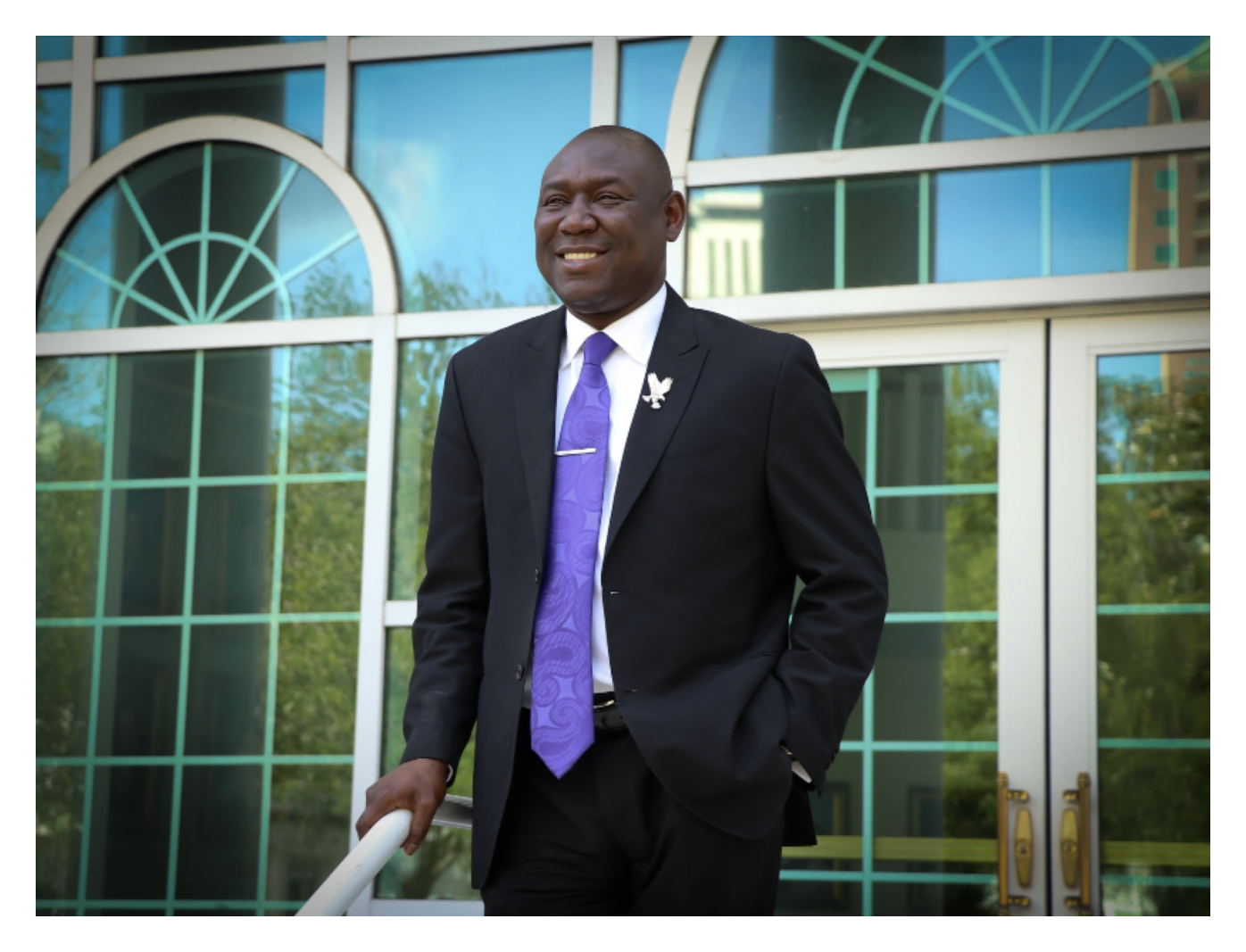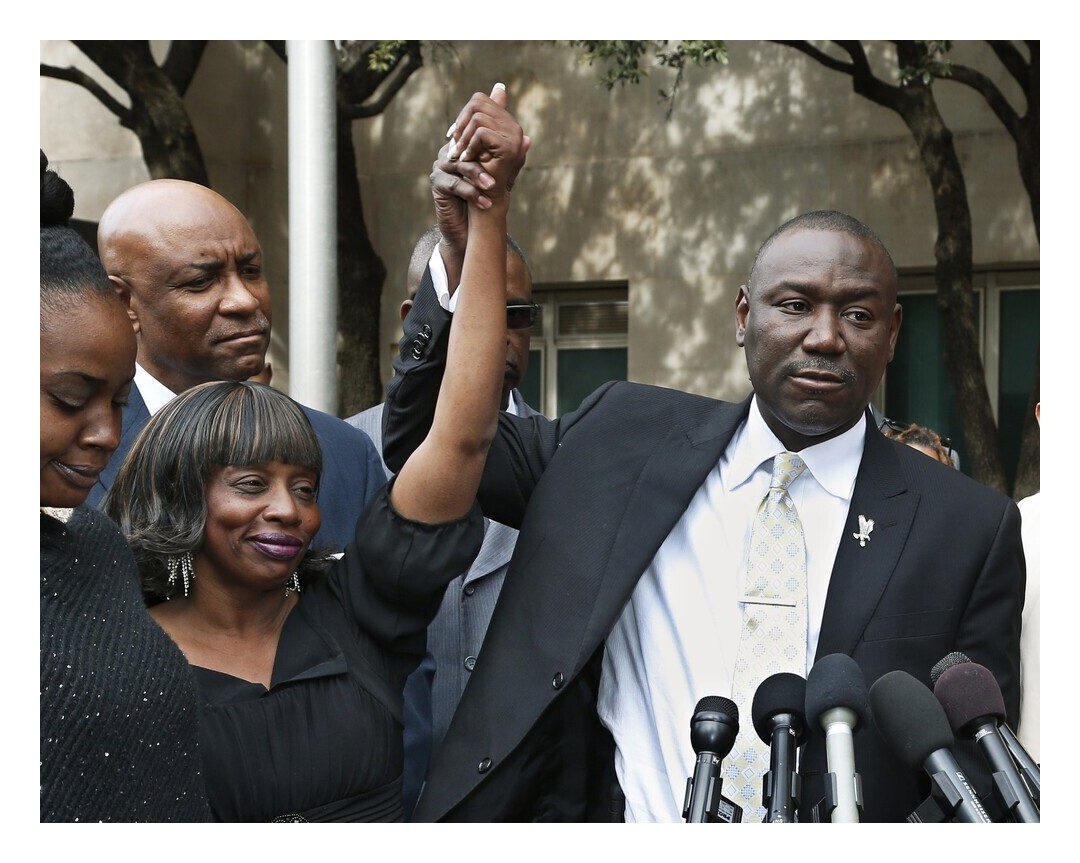Benjamin Crump: Trial Lawyer for Justice
By Brian Hudgins
Attorney Benjamin Crump (B.S. ’92, J.D. ’95) did not have much evidence to go on when he made a crucial decision – but Florida State University had presented a strong case.
“I had a chance to visit Florida State and I fell in love with the university life,” Crump said. “Then I got a scholarship to Florida State. Coming from humble means, that was just a life-changing moment. It was one of the best decisions I have ever made.”
Crump lived several hours away in Fort Lauderdale and had only one visit to FSU to reach that decision. It laid the groundwork for Crump gaining a new group of mentors. “There were so many people who shepherded me and took me under their wings,” Crump said. “First and foremost, Dr. Bob Leach, who talked about sharing and caring. That was a big aspect of the mentality for engaging with students. Dr. Freddie Groomes-McLendon (Ph.D. ’72) and Dr. Sandra Rackley (Ph.D. ’75) are people I consider my mentors to this day. They have always been my guiding lights.”
Since then, Crump’s career has placed him in venues where he is building the case. His early interest in personal injury cases is rooted in a broader mission focused on civil rights. “Personal injury is a civil rights issue,” Crump said. “It is about equal justice for all Americans, whether a person of color is killed in a car accident or house fire.” Crump also took on a mass tort based on the use of talcum powder having a causal connection to women later being diagnosed with ovarian cancer. “We have to make people respect Thomas Jefferson’s words: All men are created equal,” Crump said.
A fierce advocate for justice, equality and civil rights, Crump is the attorney for the family of George Floyd – the Minnesota man whose death while in Minneapolis Police Department custody on May 25, 2020, sparked protests nationwide and abroad. He has taken up the George Floyd case, along with the murders of Ahmaud Arbery and Breonna Taylor, to drive a movement toward equality, police reform and justice for communities of color.
This is not Crump’s first high-profile civil rights case. Seven years ago, he represented the family of Trayvon Martin. “A 17-year-old African-American killed by a neighborhood watch volunteer,” Crump said. “That was Trayvon’s life and nobody was putting anything on it. Trayvon’s parents called me along with Daryl Parks (J.D. ’95), a former law partner who also graduated from the FSU College of Law. We were going to say Trayvon Martin’s life matters.”
 The case was groundbreaking for a couple of reasons: the sheer number of people who spoke out and the implications moving forward. “This person (George Zimmerman) was not a police officer,” Crump said. “It became a situation where every Tom, Dick and Harry can kill our children and then say, ‘Stand your ground.’ It was an issue we tried to frame for America – don’t tell me just because it’s legal, that makes it right.”
The case was groundbreaking for a couple of reasons: the sheer number of people who spoke out and the implications moving forward. “This person (George Zimmerman) was not a police officer,” Crump said. “It became a situation where every Tom, Dick and Harry can kill our children and then say, ‘Stand your ground.’ It was an issue we tried to frame for America – don’t tell me just because it’s legal, that makes it right.”
As Crump combs through particulars of the Floyd case surrounding the police interaction, arrest and Floyd’s death, one stark difference separates it from the Martin case, the existing videos of Floyd’s arrest and death. Crump cites video technology as a game changer. “When you think about the advent of surveillance video, body camera video and dash cam video – for decades black people have been saying, ‘the police brutalized me, the police used excessive force against me or the police shot me in the back,’” Crump said. “These videos started saying, you don’t have to just believe me. You can look at the video.”
Fighting for justice on behalf of the marginalized is Crump’s calling. “It really is one of the greatest responsibilities you can take on when the George Floyd family says, ‘Help us achieve justice for George Floyd.’” Crump said.

